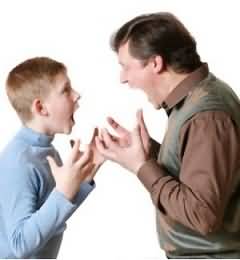Parent - Player Guidelines
By Dr. James Gels, From the Coach’s Clipboard Basketball Playbook"Helping coaches coach better..."
I wasn't looking forward to writing an article on how parents should be good parents for their athlete child. It seems rather presumptuous since parents know their child better than anyone else. And the kind of parent that needs advice probably will not read this article.
On the other hand, I have seen and heard a lot of stupid things done by parents over the years, and have made some of those same mistakes myself when my child played years ago. So here goes.
Be a parent, not a coach. Your child wants your support and love, not your basketball tips, even though you think you are just trying to help him/her. Your child wants you to be proud of him/her, no matter what happens, however bad he/she played, or however bad they lost. Resist the urge to offer advice in the car on the way home. They don't want to hear it or talk about it then. Instead, something like "I just love watching you play..." might be a lot better.

Let them have fun. That's the reason your child should be playing. Don't force your child to play if he/she really has no interest. If your son/daughter shows a real interest in the game, then support him/her without pushing or pressuring him/her to excel.
If you want to help, just buy him/her a basketball for practicing dribbling, ball-handling, shooting, etc. If you want to go the next step, put up a hoop in your driveway. Then go outside and play some fun, stress-free driveway games.
Do not try to re-live your childhood through your son or daughter. Some parents so badly want their child to be a star. Some parents want to keep the "Smith" name alive (just an example)... all "Smiths" in this town were good players for years, and we have to keep on with the tradition.
If your child is not interested, don't force him/her. We all have talents and are special in our own ways. Kids need to discover what they like and what they are really good at... maybe it's swimming, or cross-country, or playing the cello or piano, or painting beautiful pictures. If God wanted us all to be basketball players, we'd all be 7' tall and be able to jump out of the gym!
So don't pressure your child. I have seen a parent make a child workout in the driveway for two hours after every "poorly played" game. I once knew a parent who gave his daughter one dollar for every point she would make in a game! - talk about pressure and what that does to the concept of "team".
Be supportive, not a contrarian. Support your child. Go to his/her games as much as possible. Support the team. Support the other players. Support the coaches. Criticizing other players to make your own child look better is a bad thing.
Undermining the coaches, and acting like a basketball authority, will only hurt your child. If it gets back to the coach, your child will probably play less. If you voice your opinions to your child, he/she will lose respect for the coach, and will not work as hard in practices or games.

Show good sportsmanship and be a good example to your child. Amazingly, I have seen some parents, people whom I have great respect for, community leaders, become complete idiots in a gym when their own child was playing.
Good parents can lose their objectivity in a gym when they care mainly about what's happening with their own child... how much playing time, official's calls, etc. You can yell at games, but be positive and encouraging. Don't get on your child, other players, or the coach. Be respectful of the officials... 99.5% are honest and are trying their best to call a good, fair game.
As a parent, you are not objective. I was going to say "try to be objective", but you can't be because of the fact that you are a parent. Most parents honestly believe their own son/daughter is better than they are. It's rarely the other way around.
Encourage your child to follow team rules and respect other players, the coaches, opponents and the officials. Let your child work out problems with the coach and other players. Listen to him/her intently and offer some advice on how to handle a problem, but first let him/her try to work it out. This is an important skill to learn for later years. Kids will never learn to be self-sufficient if parents are always running interference for them. Have confidence in your child to work things out.
Be nice! Get along with other parents and fans.

Remember that your child should be playing for fun, to be with friends, and to be part of a team experience. Forget the college scholarship idea. Only a very small percentage of youth players ever go on to play college ball, and that is often not an easy, pleasant road itself.
I have had college players come back and tell me years later that the most fun they ever had playing basketball was, not as a college player, but as a kid or high school player, with their childhood friends, just for the love and fun of the game.
If you want your child to get a college scholarship, have them study hard and get good grades, as they might have a better chance for an academic scholarship than an athletic scholarship.
Coaching from the Stands from Coach Kevin Eastman:
Your kid is complaining about not enough playing time? See this from Doc Rivers:
Related page:Your kid is complaining about not enough playing time? See this from Doc Rivers:
Parent - Coach Relationships